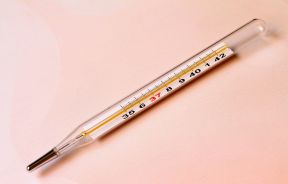Proposed Solution for Global Warming: Spraying Man-Made Clouds Into Stratosphere

A pair of engineers from Harvard will be spraying sun-reflecting chemical particles into the atmosphere in an attempt to artificially cool the planet. The experiment will take place over Fort Sumner, New Mexico within a year.
The experiment, among the latest in a field called solar geoengineering, attempts to recreate the effects of volcanoes. Volcanoes spew sulphates into the air, which bounce sunlight back into space and decrease the local atmosphere.
Despite the backing of Bill Gates’ foundation, many environmentalists and scientists are wary of the effects of the experiment. Some environmentalists worry that the push for geoengineering will reduce efforts to lower carbon emissions. Others, targeting the experiment specifically, say that the risks of geoengineering have been studied extensively through modeling and the study of the effects of volcanic sulphates.
But David Keith, one of the two lead investigators, thinks that the experiment will be perfectly safe. He argues that it is impossible to recreate stratosphere conditions in the laboratory, and that their experiment – in which they will release small particles in order to judge their effect on ozone particles – will inform their future experiments where they will spray larger amounts of sulphate.
Speaking on behalf of Canada’s ETC Group, Pat Mooney said that the impact could be devastating, citing potential further damage to the ozone layer and disruption of rainfall, especially in tropical or subtropical climates, which would consequently affect the food supply of billions of people. Mooney added that geoengineering would probably only exacerbate climate-related international conflict, and would not help decrease greenhouse gas levels or ocean acidification.
A study conducted by the European Geosciences Union stated that rainfall levels could fall by 15 percent in North America, Europe, and Asia, and by as much as 20 percent in South America due to geoengineering efforts.
Last fall, the United Kingdom’s attempt to pump water into the air was cancelled amidst controversies over patents and outrage from Non-Governmental Organizations. The project, called the Stratospheric Particle Injection for Climate Engineering, or SPICE, will be studied by Keith and his partner James Anderson, before their own experiments begin.
Published by Medicaldaily.com



























